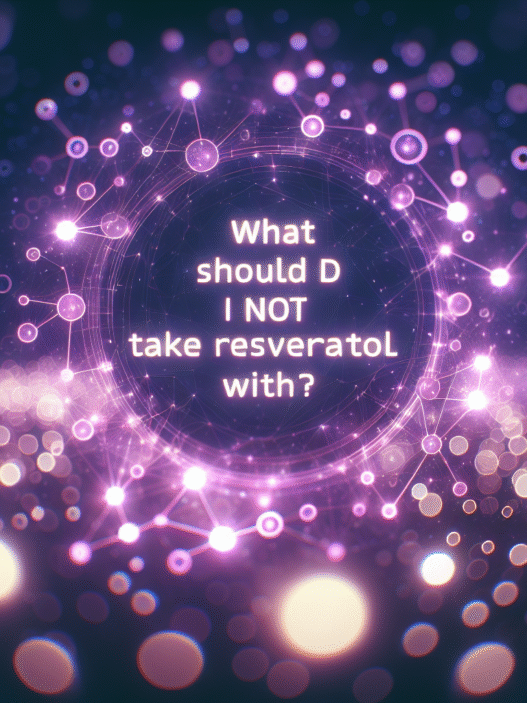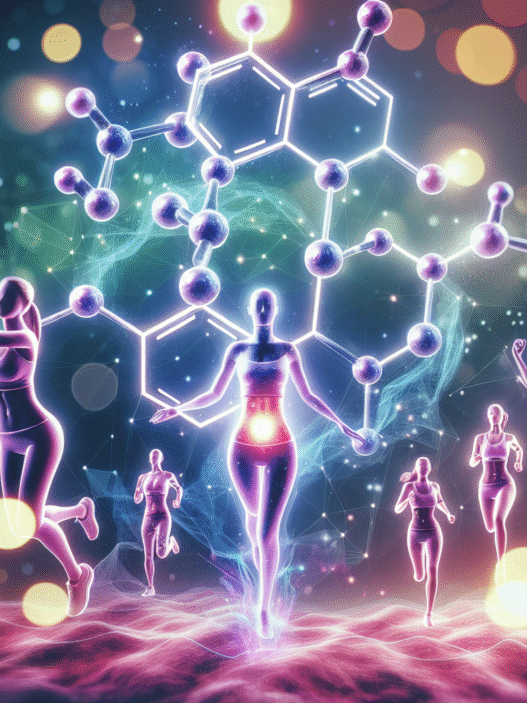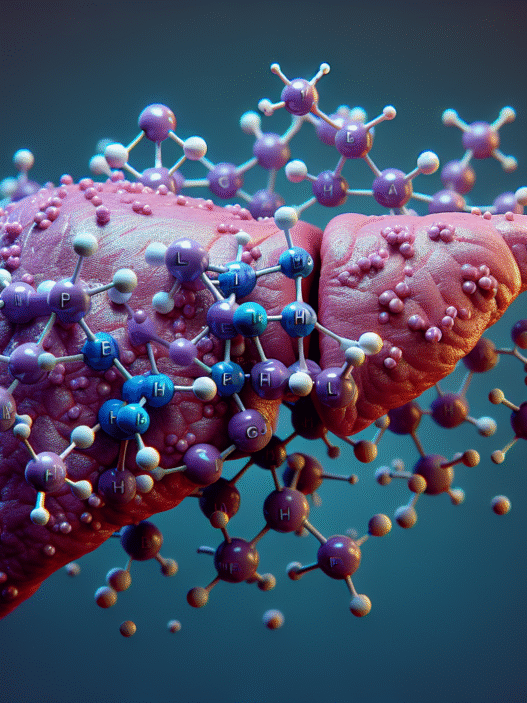Foods Rich in Resveratrol
Resveratrol is a powerful antioxidant found in various foods, particularly those derived from plants. Known for its potential health benefits, it’s important to identify which foods are highest in resveratrol to effectively incorporate them into a diet aimed at holistic wellness.
Natural Sources of Resveratrol
Several foods have been identified as rich sources of resveratrol. These include:
| Food Item | Resveratrol Content (μg/100 g) |
|---|---|
| Red Grape Skin | 483,420 |
| Red Wine | Varies by brand and type |
| Blueberries | Moderate/content not as high |
| Peanuts | Present in notable amounts |
| Dark Chocolate | Contains some resveratrol |
| Cranberries | Notable levels of resveratrol |
Plants produce resveratrol to protect themselves from environmental stressors such as UV radiation and fungal infections (Harvard Health Publishing).
Resveratrol in Red Wine
Red wine is often highlighted for its high resveratrol content. It offers not only antioxidant properties but also anti-inflammatory effects, potentially protecting against serious conditions such as cancer, diabetes, and Alzheimer’s disease (WebMD). The amount of resveratrol varies significantly among different types of red wines, making it a popular topic of interest for those looking to boost their health through dietary choices.
- On average, red wine contains between:
- 1 – 5 mg of resveratrol per liter, depending on the grape variety and winemaking process.
Resveratrol in Berries
Berries are another excellent natural source of resveratrol.
| Berry Type | Resveratrol Content (μg/100 g) |
|---|---|
| Blueberries | Moderate levels |
| Raspberries | Present in lower amounts |
| Mulberries | Higher levels compared to others |
Berries include a variety of antioxidants, and their inclusion in the diet may significantly contribute to overall health. Regular consumption of these fruits can help enhance antioxidant intake, providing additional benefits on top of the resveratrol content (WebMD).
Incorporating these foods into a balanced diet can help individuals maximize their resveratrol intake and potentially experience its array of health benefits. For detailed guidance on the health advantages, refer to our article on what are the benefits of taking resveratrol?.
Health Benefits of Resveratrol
Resveratrol, a natural compound found in various foods, is widely recognized for its numerous health benefits. Especially notable are its antioxidant properties, anti-inflammatory effects, and potential for disease prevention.
Antioxidant Properties
Resveratrol acts as a potent antioxidant, helping to combat oxidative stress in the body. It reduces the damage caused by free radicals, which are unstable molecules that can harm cells and contribute to aging and various diseases. Antioxidants are essential for maintaining overall health and are linked to a lower risk of chronic illnesses such as cancer, diabetes, and cardiovascular diseases. By regularly consuming foods rich in resveratrol, individuals may improve their body’s ability to fight oxidative damage and promote longevity.
| Food Source | Resveratrol Content (mg per 100g) |
|---|---|
| Red Wine | 0.3 – 1.0 |
| Grapes | 0.2 – 0.7 |
| Blueberries | 0.05 – 0.1 |
| Peanuts | 0.01 – 0.04 |
Anti-Inflammatory Effects
Beyond its antioxidant properties, resveratrol displays significant anti-inflammatory effects. This compound interferes with various signaling pathways that lead to inflammation in the body. Chronic inflammation is known to contribute to serious health conditions, including heart disease, diabetes, and Alzheimer’s disease. By incorporating resveratrol-rich foods into the diet, individuals may mitigate inflammatory responses, potentially enhancing their overall health and reducing the risk of related diseases. Research has shown that resveratrol can improve the health and survival of high-calorie diet subjects in studies involving mice (Nature).
Disease Prevention
The potential for resveratrol to aid in disease prevention is one of its most exciting benefits. Studies have suggested that this compound may lower the risk of chronic diseases, primarily due to its antioxidant and anti-inflammatory properties. For instance, regular consumption of foods high in antioxidants, including those rich in resveratrol, has been associated with a decreased risk of conditions like atherosclerosis, cancer, and diabetes. As a holistic health seeker, this knowledge can guide dietary choices that prioritize disease prevention.
Given the array of benefits associated with resveratrol, it is advisable to discuss any potential supplementation with a healthcare provider. Those considering increased intake should explore resources on what are the benefits of taking resveratrol? and does resveratrol burn belly fat? to determine the best approach for their health goals.
Resveratrol Supplements
Resveratrol supplements have gained popularity among those seeking the potential health benefits associated with this compound. Many individuals interested in natural health and wellness are curious about the formats in which resveratrol is available and the recommended dosages.
Resveratrol Capsules
Resveratrol supplements are predominantly available in capsule form. These capsules typically contain concentrated amounts of resveratrol, offering an easy and convenient way to incorporate this antioxidant into one’s diet. Many natural health enthusiasts appreciate capsules for their ability to provide controlled dosages without requiring the consumption of large quantities of food.
When selecting a resveratrol capsule, individuals should look for high-quality products that contain natural sources of resveratrol, such as extracts from grapes or berries. The potency and purity of the supplements can vary significantly between brands, so it is essential to read labels and choose reputable sources to maximize potential benefits.
Recommended Dosages
Determining the appropriate dosage of resveratrol can be challenging, as research has produced varying results. According to clinical studies, it is generally considered safe to consume up to 5 grams of resveratrol per day; however, doses exceeding 2.5 grams may lead to gastrointestinal side effects such as cramping, flatulence, and nausea (Medical News Today).
A systematic review indicated that a dosage of 150 milligrams or more effectively reduced systolic blood pressure without significant effects on diastolic levels. Individual tolerance to resveratrol can vary widely, and there is no universally recommended dose. Therefore, it is advisable to consult a healthcare professional to identify the most suitable amount based on personal health needs and conditions.
| Dosage Range | Effects |
|---|---|
| Up to 150 mg | May reduce systolic blood pressure |
| 150 mg – 2.5 g | Safe for most individuals; may have mild side effects at higher doses |
| Above 2.5 g | Possible gastrointestinal side effects; not universally recommended |
As research continues on the potential health benefits of resveratrol, individuals interested in supplementation should remain informed. Explore additional information on the health benefits of taking resveratrol and learn more about any potential interactions or side effects you should be aware of.
Resveratrol Research Studies
Research surrounding resveratrol has gained significant traction in recent years, particularly for its potential health benefits. Studies have focused on its effects on renal function, cognitive function, and liver health.
Renal Function Enhancement
A systematic review and meta-analysis of randomized controlled clinical trials suggest that resveratrol may mildly improve renal function in the general adult population. This finding is significant for those seeking natural ways to enhance kidney health, particularly those with mild to moderate renal impairments. Research indicates that the antioxidants in resveratrol may play a role in reducing oxidative stress on renal tissues, contributing to better overall kidney function.
| Study Focus | Effect on Renal Function |
|---|---|
| Systematic Review of Clinical Trials | Mild improvement observed |
Effects on Cognitive Function
Resveratrol supplementation has demonstrated promising results regarding cognitive performance in elderly individuals. A pilot study assessed the effects of 90 days of resveratrol supplementation on cognitive function, showing improvements that suggest the compound may benefit memory and cognitive clarity (J Altern Complement Med). These findings are encouraging for those looking to support cognitive health naturally as they age.
| Study Duration | Population | Notable Effect |
|---|---|---|
| 90 Days | Elderly | Promising improvements in cognitive function |
Role in Liver Health
Research indicates that resveratrol supplementation can also contribute to mild improvements in liver function, particularly among individuals with metabolic syndrome and related disorders. A systematic review and meta-analysis of randomized controlled trials highlighted these benefits, suggesting that resveratrol may aid in the management of liver-related issues and enhance liver health overall. The compound’s antioxidant properties appear to support liver function by reducing inflammation and oxidative damage.
| Study Focus | Effect on Liver Function |
|---|---|
| Systematic Review of Clinical Trials | Mild improvement observed |
As studies continue to explore the multifaceted benefits of resveratrol, those interested in natural approaches to health may consider its potential for enhancing renal, cognitive, and liver functions. For more information on the benefits of this powerful compound, see our article on what are the benefits of taking resveratrol?.
Resveratrol in Peanuts
Peanuts are often overlooked as a potential source of resveratrol, but they offer some unique benefits, particularly when consumed as sprouts. This section will explore the bioavailability of resveratrol in peanut sprouts and their antioxidant activity.
Bioavailability in Peanut Sprouts
Peanut sprouts are remarkably rich in resveratrol, boasting levels that are approximately nine times higher than those found in regular peanut seeds PubMed Central. This increase in resveratrol content makes peanut sprouts an excellent choice for those seeking to incorporate more of this beneficial compound into their diet.
The high concentration of resveratrol in peanut sprouts is linked to their overall composition of phenolic substances. These phenolic compounds not only contribute to health benefits but also enhance the bioavailability of resveratrol, making it easier for the body to absorb and utilize.
| Component | Concentration in Peanut Sprouts |
|---|---|
| Resveratrol | 9 times higher than peanut seeds |
| Total Phenol Content (TPC) | Significant levels retained upon cooking |
| Total Flavonoid Content (TFC) | High levels, best preserved through microwave heating |
Antioxidant Activity in Peanuts
The antioxidant activity of peanuts, particularly in their sprouted form, is attributed to their phenolic compounds. Among the various antioxidants present, resveratrol, catechin, and quercetin have been identified as the main contributors to their antioxidant effects PubMed Central.
Cooking methods significantly influence the antioxidant properties of peanut sprouts. Research shows that microwave heating is the most effective method for preserving the antioxidant capacity, with retention rates of 82.05% for TPC and 85.35% for TFC. In contrast, other cooking methods tend to degrade these beneficial compounds.
In summary, incorporating peanut sprouts into a diet can provide a concentrated source of resveratrol and other antioxidants, helping to enhance overall health and well-being. For more insights on the benefits and effects of resveratrol, read about what are the benefits of taking resveratrol?.
Resveratrol and Additional Findings
Resveratrol, known for its numerous health benefits, has several noteworthy characteristics that enhance its therapeutic potential. This section explores glycosylated forms of resveratrol, its antimicrobial and antifungal activities, and additional health benefits.
Glycosylated Forms of Resveratrol
Resveratrol is often present in dietary products as glycosylated forms, primarily known as piceid. This process of glycosylation protects the compound from enzymatic oxidation, which helps to preserve its biological effects and improves overall stability and bioavailability. However, for effective absorption in the intestine, glycosidases are required (PubMed Central).
The table below summarizes key differences between resveratrol and its glycosylated form:
| Form of Resveratrol | Stability | Absorption | Biological Effects |
|---|---|---|---|
| Resveratrol | Moderate | Requires glycosidases | Antioxidant, anti-inflammatory, etc. |
| Piceid | High | Improved due to glycosylation | Enhanced benefits and stability |
Antimicrobial and Antifungal Activities
Resveratrol possesses notable antimicrobial properties. Research has indicated its effectiveness in inhibiting the growth of various pathogens, including Candida albicans, Gram-positive, and Gram-negative bacteria, as well as fungi. This suggests that resveratrol could serve as a potential antibacterial and antifungal agent (PubMed Central).
The table below highlights specific pathogens that resveratrol impacts:
| Pathogen Type | Vigor of Inhibition |
|---|---|
| Candida albicans | High |
| Gram-positive bacteria | Moderate to High |
| Gram-negative bacteria | Moderate |
| Fungi | High |
Potential Health Benefits
Beyond its antioxidant and anti-inflammatory properties, resveratrol is associated with various potential health benefits. These benefits include but are not limited to:
- Improved cardiovascular health
- Support for weight management
- Enhancement of cognitive function
- Protection against certain chronic diseases
For more information on the benefits associated with resveratrol, visitors can check out our article on what are the benefits of taking resveratrol?.
In summary, the glycosylated forms of resveratrol, along with its antimicrobial capabilities and potential health benefits, enhance its profile as a powerful natural compound worth considering for holistic wellness seekers.





















